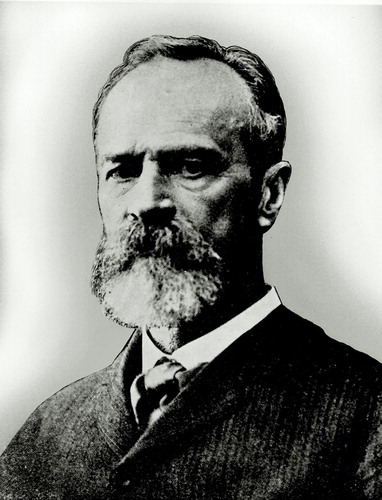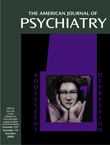William James, 1842–1910
William James never actually practiced medicine, but he may be Harvard Medical School’s most distinguished graduate. He is also Harvard University’s most important psychologist and arguably its greatest philosopher. During his medical training James set off on an expedition to the Amazon with the naturalist Louis Aggasiz. James returned to Cambridge plagued by infectious diseases and what in retrospect must have been the same familial affective disorder that afflicted Henry and Alice James. Although he managed to graduate from medical school, William James was living at home as a semi-invalid when the president of Harvard invited him to teach part of a new course on physiology. There James found his real vocation as a teacher and a scholar. From his years of physiology came the James-Lange theory of emotion (1). After turning to psychology, James produced the two-volume text Principles of Psychology(2), which launched the American discipline. As a philosopher, James’s pragmatism/radical empiricism inspired John Dewey and the critical antisystemic tradition in American philosophy. James is best known today for his Varieties of Religious Experiences (3), where he presents anecdotal accounts of how people’s lives were changed by conversion or other religious experiences. Unlike Freud, whom he considered a man of fixed ideas, James was open to the possibility of God.
William James was interested in hypnosis and Janet’s research on experimental psychopathology and psychotherapy. It was James who introduced the term “dissociation” into our psychiatric lexicon. Like his godfather, Ralph Waldo Emerson, James was a spellbinding and edifying essayist and speaker. The irrepressible Gertrude Stein, who was his student, described the impression he made on her with Nietzchean irony: “Why kill yourself when the world has people in it like Professor James?”
William James was and is an intellectual hero to many—he had the capacity to struggle for knowledge while accepting uncertainty. Although he is now sometimes ridiculed for choosing to believe in free will, those who know his life and his ideas understand the profound humility and wisdom of that choice. He was a man who raised up hope against the darkness.
Address reprint requests to Dr. Stone, Harvard Law School, Langdell Hall, 195 Brattle St., Cambridge, MA 02138; [email protected] (e-mail). Image courtesy of the APA Library and Archives.

William James
1. James W: What is an emotion? Mind 1884; 9:188–205Google Scholar
2. James W: The Principles of Psychology, vols 1, 2. New York, Henry Holt, 1890Google Scholar
3. James W: The Varieties of Religious Experience. New York, Longmans, Green, 1902Google Scholar



